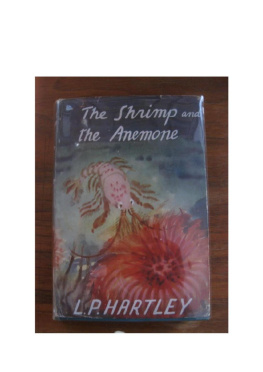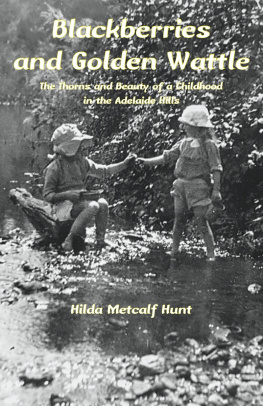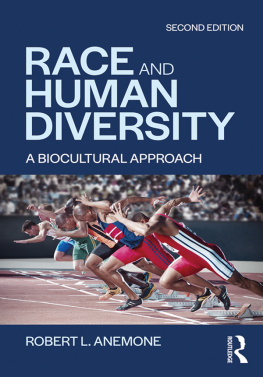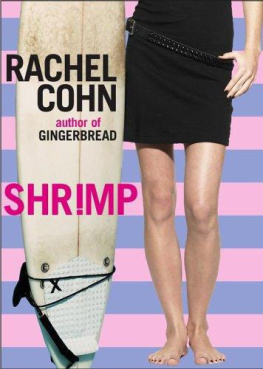L. P. Hartley - The Shrimp and the Anemone
Here you can read online L. P. Hartley - The Shrimp and the Anemone full text of the book (entire story) in english for free. Download pdf and epub, get meaning, cover and reviews about this ebook. year: 2001, publisher: Faber & Faber Ltd, genre: Detective and thriller. Description of the work, (preface) as well as reviews are available. Best literature library LitArk.com created for fans of good reading and offers a wide selection of genres:
Romance novel
Science fiction
Adventure
Detective
Science
History
Home and family
Prose
Art
Politics
Computer
Non-fiction
Religion
Business
Children
Humor
Choose a favorite category and find really read worthwhile books. Enjoy immersion in the world of imagination, feel the emotions of the characters or learn something new for yourself, make an fascinating discovery.
- Book:The Shrimp and the Anemone
- Author:
- Publisher:Faber & Faber Ltd
- Genre:
- Year:2001
- Rating:3 / 5
- Favourites:Add to favourites
- Your mark:
- 60
- 1
- 2
- 3
- 4
- 5
The Shrimp and the Anemone: summary, description and annotation
We offer to read an annotation, description, summary or preface (depends on what the author of the book "The Shrimp and the Anemone" wrote himself). If you haven't found the necessary information about the book — write in the comments, we will try to find it.
The Shrimp and the Anemone — read online for free the complete book (whole text) full work
Below is the text of the book, divided by pages. System saving the place of the last page read, allows you to conveniently read the book "The Shrimp and the Anemone" online for free, without having to search again every time where you left off. Put a bookmark, and you can go to the page where you finished reading at any time.
Font size:
Interval:
Bookmark:

L. P. Hartley
___________________________________________
The Shrimp and the Anemone
Book I of the Eustace and Hilda trilogy
First published in 1944
The Shrimp and the Anemone
"EUSTACE! Eustace!" Hilda's tones were always urgent; it might not be anything very serious. Eustace bent over the pool. His feet sank in its soggy edge, so he drew back, for he must not get them wet. But he could still see the anemone. Its base was fastened to a boulder, just above the water-line. From the middle of the other end, which was below, something stuck out, quivering. It was a shrimp, Eustace decided, and the anemone was eating it, sucking it in. A tumult arose in Eustace's breast. His heart bled for the shrimp, he longed to rescue it; but, on the other hand, how could he bear to rob the anemone of its dinner? The anemone was more beautiful than the shrimp, more interesting and much rarer. It was a 'plumose' anemone; he recognised it from the picture in his Natural History, and the lovely feathery epithet stroked the fringes of his mind like a caress. If he took the shrimp away, the anemone might never catch another, and die of hunger. But while he debated the unswallowed part of the shrimp grew perceptibly smaller.
Once more, mingled with the cries of the seamews and pitched even higher than theirs, came Hilda's voice.
"Eustace! Eustace! Come here! The bank's breaking! It's your fault! You never mended your side!"
Here was another complication. Ought he not perhaps to go to Hilda and help her build up the bank? It was true he had scamped his side, partly because he was piqued with her for always taking more than her fair share. But then she was a girl and older than he and she did it for his good, as she had often told him, and in order that he might not overstrain himself. He leaned on his wooden spade and, looking doubtfully round, saw Hilda signalling with her iron one. An ancient jealousy invaded his heart. Why should she have an iron spade? He tried to fix his mind on the anemone. The shrimp's tail was still visible but wriggling more feebly. Horror at its plight began to swamp all other considerations. He made up his mind to release it. But how? If he waded into the water he would get his socks wet, which would be bad enough; if he climbed on to the rock he might fall in and get wet all over, which would be worse. There was only one thing to do.
"Hilda," he cried, "come here."
His low soft voice was whirled away by the wind; it could not compete with the elements, as Hilda's could.
He called again. It was an effort for him to call: he screwed his face up: the cry was unmelodious now that he forced it, more like a squeak than a summons. But directly she heard him Hilda came, as he knew she would. Eustace put the situation before her, weighing the pros and cons. Which was to be sacrificed, the anemone or the shrimp? Eustace stated the case for each with unflinching impartiality and began to enlarge on the felicity that would attend their after-lives, once this situation was straightened out--forgetting, in his enthusiasm, that the well-being of the one depended on the misfortune of the other. But Hilda cut him short.
"Here, catch hold of my feet," she said.
She climbed on to the boulder, and flung herself face down on the sea-weedy slope. Eustace followed more slowly, showing respect for the inequalities of the rock. Then he lowered himself, sprawling uncertainly and rather timidly, and grasped his sister's thin ankles with hands that in spite of his nine years still retained some of the chubbiness of infancy. Once assumed, the position was not uncomfortable. Eustace's thoughts wandered, while his body automatically accommodated itself to the movements of Hilda, who was wriggling ever nearer to the edge.
"I've got it," said Hilda at last in a stifled voice. There was no elation, only satisfaction in her tone, and Eustace knew that something had gone wrong.
"Let me look!" he cried, and they struggled up from the rock. The shrimp lay in the palm of Hilda's hand, a sad, disappointing sight. Its reprieve had come too late; its head was mangled and there was no vibration in its tail. The horrible appearance fascinated Eustace for a moment, then upset him so much that he turned away with trembling lips. But there was worse to come. As a result of Hilda's forcible interference with its meal the anemone had been partially disembowelled; it could not give up its prey without letting its digestive apparatus go too. Part of its base had come unstuck and was seeking feebly to attach itself to the rock again. Eustace took Hilda's other hand and together they surveyed the unfortunate issue of their kind offices.
"Hadn't we better kill them both?" asked Eustace with a quaver in his voice,
"since they're both wounded?"
He spoke euphemistically, for the shrimp was already dead.
But Hilda did not despair so easily.
"Let's put it in the water," she suggested. "Perhaps that'll make it come to." A passing ripple lent the shrimp a delusive appearance of life; when the ripple subsided it floated to the surface, sideways up, and lay still.
"Never mind," said Hilda, "we'll see if the anemone will eat it now." Again they disposed themselves on the rock, and Hilda, with her head downwards and her face growing redder every minute, tried her hardest to induce the anemone to resume its meal. For the sake of achieving this end she did not shrink from the distasteful task of replacing the anemone's insides where they belonged, but her amateur surgery failed to restore its appetite and it took no interest in the proffered shrimp.
"I wish we'd let them alone," sobbed Eustace. "What would have been the good of that?" demanded Hilda, wiping her brother's eyes. He stood quiescent, his hands hanging down and his face turned upwards, showing no shame at being comforted and offering no resistance, as though he was familiar with the performance and expected it. "We had to do something," Hilda continued. "We couldn't let them go on like that."
"Why couldn't we?" asked Eustace. All at once, as the thought struck him, he ceased crying. It seemed to cost him as little effort to stop as it costs a dog to wake out of sleep. "They didn't mean to hurt each other."
The disaster that had overtaken their remedial measures was so present to him that he forgot the almost equally painful situation those measures had been meant to relieve, and thought of the previous relationship of the shrimp and the anemone as satisfactory to both.
"But they were hurting each other," remarked Hilda. "Anyhow the anemone was eating the shrimp, if you call that hurting."
Eustace could see no way out of this. His mind had no power to consider an unmixed evil, it was set upon happiness. With Hilda's ruthless recognition of an evil principle at the back of the anemone affair his tears started afresh.
"Now don't be a cry-baby," Hilda not at all unkindly admonished him. "There's Gerald and Nancy Steptoe coming, nasty things! If you stand still a minute," she went on, preparing with the hem of her blue frock to renew the assault upon his face,
"they'll think it's only the wind."
The appeal to Eustace's pride was one Hilda tried only for form's sake; she thought it ought to weigh with him, but generally, as she knew, it made him irritable.
"I want to go and talk to Nancy," he announced. His attitude to other children was tinged with a fearful joy, altogether unlike his sister's intolerant and hostile demeanour. "Gerald's left her by herself again: he's climbing up the cliffs, look, and she daren't.
"What do you want to talk to her for?" asked Hilda, a trifle crossly. "It's her fault, she shouldn't have let him."
Next pageFont size:
Interval:
Bookmark:
Similar books «The Shrimp and the Anemone»
Look at similar books to The Shrimp and the Anemone. We have selected literature similar in name and meaning in the hope of providing readers with more options to find new, interesting, not yet read works.
Discussion, reviews of the book The Shrimp and the Anemone and just readers' own opinions. Leave your comments, write what you think about the work, its meaning or the main characters. Specify what exactly you liked and what you didn't like, and why you think so.












